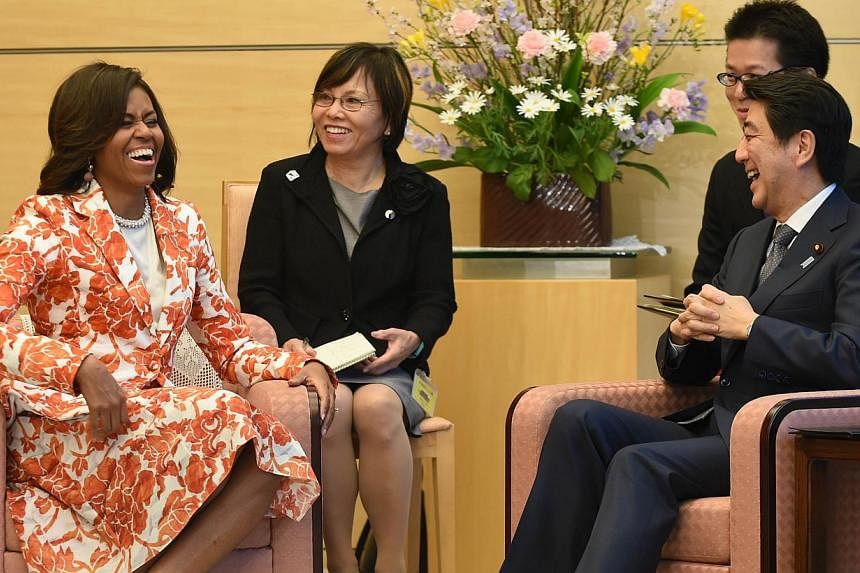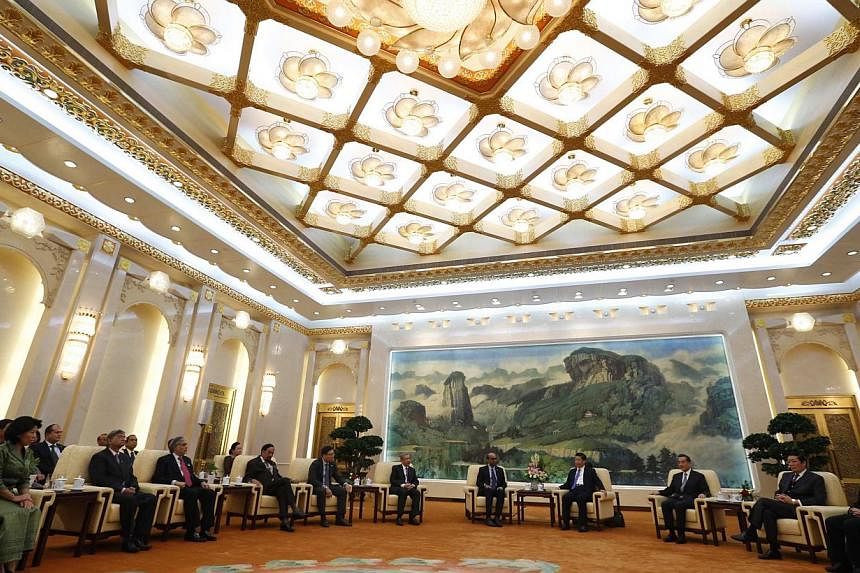The British decision to join the Asian Infrastructure Investment Bank (AIIB) on March 12 has triggered an avalanche against the US effort to deter its allies from being a part of the China-led bank.
Germany, France and Italy decided to follow Britain's lead by joining the AIIB on March 17. Now that all the four European members of the Group of Seven have come on board, it is reported that Australia and South Korea are also considering joining the bank. That would not only help China develop momentum in shaping the AIIB, but also have a far-reaching impact on the global financial order.
The divergence between the US and its major European allies on the AIIB does not necessarily mean that the Europeans endorse China's initiative. Instead, they realise the necessity of riding on the economic tide in Asia, driven mainly by China's rapid growth, as the centre of global economic gravity shifts from the transatlantic region to the Asia-Pacific.
According to Mr George Osborne, Britain's Chancellor of the Exchequer, "forging links between the UK and Asian economies to give our companies the best opportunity to work and invest in the world's fastest-growing markets is a key part of our long-term economic plan. Joining the AIIB at the founding stage will create an unrivalled opportunity for the UK and Asia to invest and grow together".
Given the US rebalance to the Asia-Pacific region and China's ambition to promote development along the land and maritime Silk Roads, joining the AIIB will fast-track the Europeans to the centre of the action. It will also enable them to gain substantial leverage in dealing with both the US and China, whose cooperation is essential for Europe to hold off Russia in the wake of the Ukraine crisis.
Like the four European powers, Japan has been a major - and arguably a more important - US ally. That is why Japan has been reluctant to join the AIIB. In retrospect, Japan had to abort its proposal to establish an Asian Monetary Fund after the 1997 Asian financial crisis due to firm opposition by Washington. Understandably, the US has been opposed to anything that threatens its financial dominance.
This time around, however, China is powerful enough to set up its own parallel system, not to replace, but to force its desired reform of the established financial order. With the participation of the Europeans who have enormous stakes and experience in the international financial institutions, the AIIB will play an essential role in reshaping the financial order in Asia and the world.
As a major Asian power and a US ally, Japan has an unprecedented opportunity to benefit from being the facilitator between the dominant US-led system and the emerging China-led system. Nevertheless, Japan has been paralysed on the AIIB issue because Prime Minister Shinzo Abe's frontal policy against China has made it more dependent on the US vis-a-vis China. The European decision to join the bank is a deafening wake-up call to his government, which has yet to realise the full impact of the rapid shift of the strategic balance in the region and beyond.
As the world's largest creditor nation in the last 23 years with net external assets of US$3.2 trillion (S$4.4 trillion), Japan must tap into growing capital markets in Asia. In order to reduce exposure to Japanese government bonds and improve profitability, Japan's Government Pension Investment Fund with capital of US$1.1 trillion - the second-largest pool of retirement savings in the world after the Social Security Trust Funds in the US with US$2.8 trillion - has recently announced that it will reduce its holding of Japanese bonds from 53 per cent to 35 per cent and increase its holding of foreign stocks from 16 per cent to 25 per cent. Japanese private and life insurance companies are following suit.
However, Tokyo is behind Singapore, London, Frankfurt, Seoul, Hong Kong and Macau in the RMB Qualified Foreign Institutional Investor scheme, which allows global financial institutions to invest in China's renminbi-denominated capital market. This has put financial institutions based in Tokyo at a significant disadvantage when it comes to cashing in on China's fast development, although China has been one of the biggest recipients of Japanese foreign direct investment since the 1970s. Specifically, Mr Abe has pledged to triple the export of infrastructure-related business by 2020. Japan's refusal to join the AIIB is at odds with Tokyo's aspiration to establish itself as the financial centre for infrastructure finance in Asia.
Now the European decision to join the AIIB has highlighted that Japan is missing the bus, again. Even Washington seems to have shifted on this issue. Mr Daniel Russell, the US Assistant Secretary of State for East Asian and Pacific Affairs, said on March 17 that the US message has been "to welcome investment in infrastructure, but to seek unmistakable evidence that this bank... takes as its starting point the high-water mark of what other multilateral development banks have done in terms of governance".
He went on to say: "Every government can make its own decision about whether the way to achieve that goal is by joining before the articles of agreement are clarified or by waiting to see what the evidence looks like as the bank starts to operate."
But there are fundamental differences between those who join the AIIB as the founding members before March 31 and those who sign up later. Essentially, the founding members will make the rules, and the rest will follow them. China has included Japan on its invitation list and openly expressed that it would welcome the US to join the bank. It seems unlikely that either will join the AIIB soon, but what if "Nixon goes to China" again on the AIIB issue?
Fortunately, Japan has a historical precedent to follow. After US president Richard Nixon surprised the world by meeting chairman Mao Zedong in Beijing in February 1972, Japanese prime minister Kakuei Tanaka visited China seven months later and swiftly normalised the Japan-China relationship - seven years ahead of the US. Mr Tanaka's decision then enabled Japan to gain a great strategic dividend in the years to come. Now, with so much at stake both economically and politically in the AIIB issue, can Prime Minister Abe become the next Tanaka?
Jing Huang is Lee Foundation Professor on US-China Relations and director, and Tomoo Kikuchi is senior research fellow, at the Centre on Asia and Globalisation, Lee Kuan Yew School of Public Policy, at the National University of Singapore.


